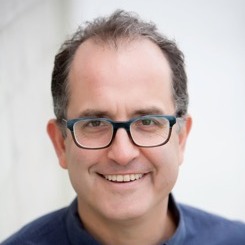Andrew Goldman has been writing for over 20 years and investing for the past 10 years. He currently writes about personal finance and investing for Wealthsimple. Andrew's past work has been published in The New York Times Magazine, Bloomberg Businessweek, New York Magazine and Wired. Television appearances include NBC's Today show as well as Fox News. Andrew holds a Bachelor of Arts (English) from the University of Texas. He and his wife Robin live in Westport, Connecticut with their two boys and a Bedlington terrier. In his spare time, he hosts “The Originals" podcast.
Kids are cute. They make funny noises. They sing adorable songs. And as soon as they get old enough for university, they might very well bleed you dry of every cent of your hard-earned savings. For that reason, if you’re planning to have children or you've already got one or two of them, you need to start saving for their education.
Once your children come into the world, you should absolutely take advantage of the government educational savings godsend, the RESP, or Registered Education Savings Plan. The truly amazing part of this plans is the free money — a government program called the Canada Education Savings Grant (CESG) will match a portion of your annual investment — 20% up to $2,500, or $500 dollars a year up to a lifetime maximum of $7,200. (Even though the CESG won’t be kicking in a percentage, you’re welcome to contribute a bunch more than $2,500 a year — up to a lifetime maximum of $50,000 per kid.) RESPs can be invested however you like — Wealthsimple’s ETFs, for instance, are an amazing option.
Besides the free government money, the other phenomenal thing about RESPs is the tax-free growth. Any investment gains in an RESP account will be untaxed. Anyone can open an RESP — mom, dad, grandma, Santa Claus, if he has access to the child’s social insurance number. Once your former drooler makes it to a University or trade school, the account can be used to pay tuition, books, or living expenses. And should your child choose to forgo higher education, the contents of an RESP can be transferred to a sibling without penalty. Should there be no sibling to transfer the money to, you won’t lose your money — however you will be required to return any of that free CESG money, and pay taxes on any growth of the RESP investment.
Spend & save with one account
Start saving

